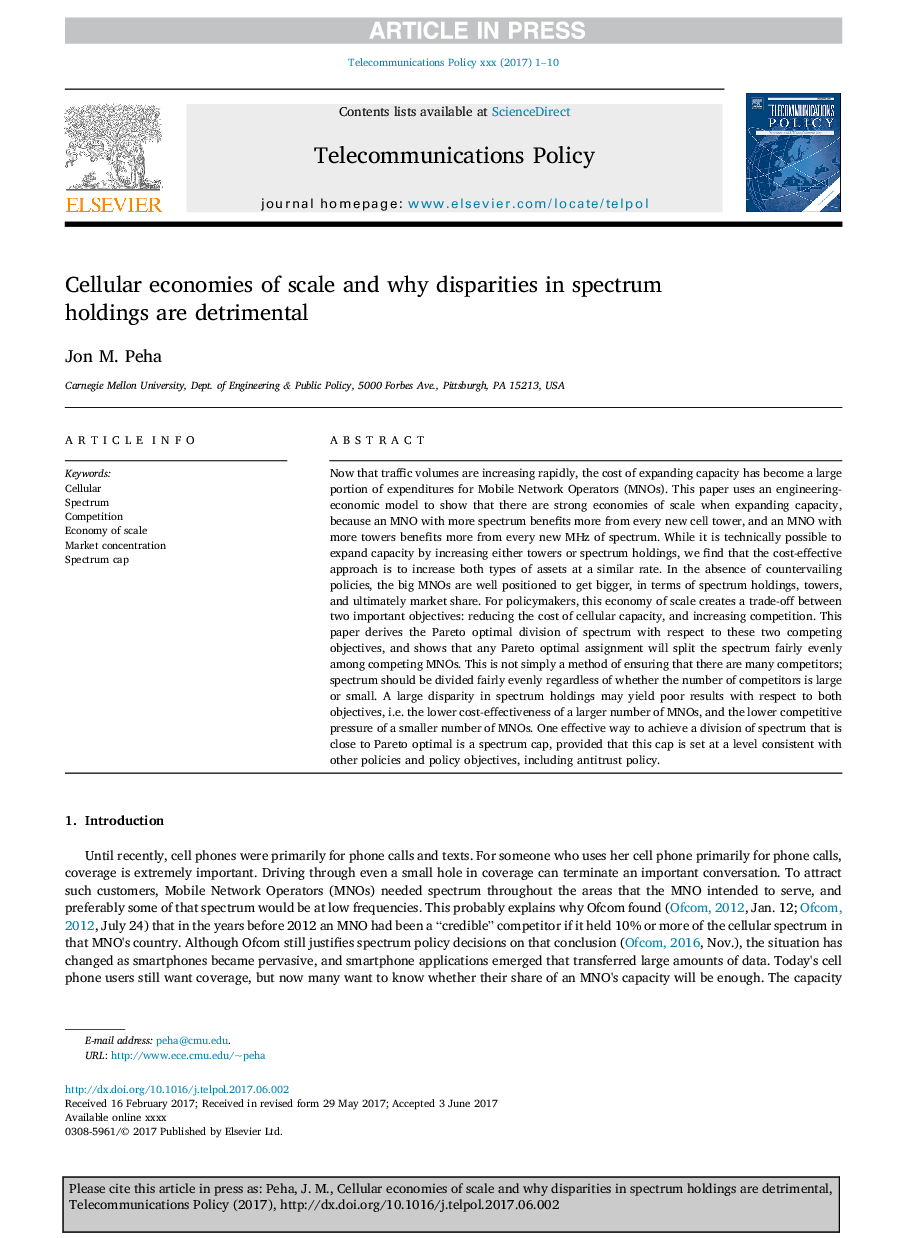ترجمه فارسی عنوان مقاله
اقتصاد سلول در مقیاس و به همین دلیل عدم وجود موجودی طیفی زیان آور است
عنوان انگلیسی
Cellular economies of scale and why disparities in spectrum holdings are detrimental
| کد مقاله | سال انتشار | تعداد صفحات مقاله انگلیسی |
|---|---|---|
| 162064 | 2017 | 10 صفحه PDF |
منبع

Publisher : Elsevier - Science Direct (الزویر - ساینس دایرکت)
Journal : Telecommunications Policy, Volume 41, Issue 9, October 2017, Pages 792-801
ترجمه کلمات کلیدی
تلفن همراه، طیف رقابت، اقتصاد مقیاس، غلظت بازار، کلاهک اسپکتروم،
کلمات کلیدی انگلیسی
Cellular; Spectrum; Competition; Economy of scale; Market concentration; Spectrum cap;

